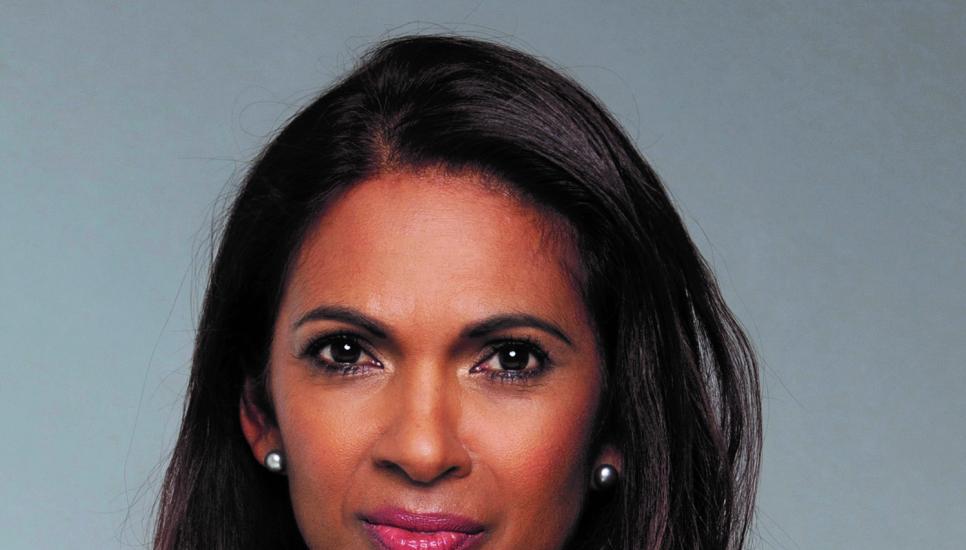Head and heart: A philanthropist talks about making a difference today

As a private and corporate philanthropist, I am saddened by the lack of smart corporate giving by the number of companies who embark on charity as a mitigating, guilt trip activity rather than one that infuses the corporate DNA. So many are still failing to employ the same levels of due diligence and strategic thinking they apply to earning money, to giving.
I am a passionate believer in corporate citizenship and conscious capitalism, which could simply be described as 'good business', combining purpose with profit. But it's more than that–it is an approach to business that recognises the fact that without a higher sense of purpose, the ability of any business to continue making profits will become increasingly limited.
I would also stress that conscious capitalism is not the same as philanthropy. It is about purpose and profit, not either or. It is about accepting that we all have a role to play in finding solutions that will improve the state of the world and that corporate activity is the backbone of economic strength and contributes to social stability.
I champion the belief of a shared responsibility in the future, of giving back to the society that affords our success, rather than any politics of jealously or stamping on the human desire for success, creativity or doing the best we can for our families and loved ones. But this is nothing new. Conscious capitalism has been around for a long time. Adam Smith, who is famous for 'the invisible hand', was also a moral philosopher and could be described as schizophrenic, wrote one of the first books on this topic and was as concerned about ethics as he was about economics. Some of the fault lies in the fact that for decades governments have encouraged companies to be capitalists–they have in effect nationalised charity by saying 'You go off and maximise shareholder value and profits, pay us taxes and trust us to look after the social health of the nation'.

It is my view that we are returning to the days of 'a tale of two cities' and as social injustice continues to grow, we cannot trust government alone to resolve these issues. I believe that only collaboration, a triumvirate between the private, public and social sectors, will resolve some of the deep seated social issues facing our society. As corporate givers we have so much more than money to give; we have a huge depth of resources and skills to offer if deployed in a smart, strategic manner.
There is no shortage of self-serving corporate philanthropic initiatives or gifts that lead to photo opportunities for CEOs or board members but which are neither effective nor aimed at long term solutions. Rather than giving to just emotive causes I believe, as business leaders and successful businesses, we should also be leading on social problem solving and funding social innovative, long-term solution driven projects and charities.
As a business when we seek to employ, partner or engage with a partner or supplier there are processes, due diligence and governance that we undertake. We use these same processes and resources for our social giving. I meet incredibly bright successful people and companies who think they can't make a giving decision–what they need, in my view, is to apply their heads as well as their hearts.

One example is to align giving with the products and services you offer. Not only would it allow your employees to see what they do in a different humanitarian light but it would also resolve the bottleneck of giving. For example, shockingly, less than 1% of charities in the UK generate over half of the sector's income. By looking beyond the symptoms, identifying causes and looking at long term strategies and funding to transform social issues, conscious capitalists can create effective altruism.
Through my company, SCMDirect.com, we are competing in terms of corporate citizenship, price and products, not price and products alone. We also see ourselves as private sector activists–using our corporate muscle within our own industry on wider anti-consumer issues, as well as supporting 'SME' charities practising social problem solving.
Via our True and Fair Campaign, which is calling for dramatic change in the savings and investment industry, we are highlighting anti-consumer practices and proposing solutions and a Code of Ethics, all of which will result in dramatically better outcomes for prudent consumers, as well as greater societal responsibilities from savings and investment companies.
Via our True and Fair Foundation, we are passionate about smarter giving, where our experience and that of our suppliers and partners, help a portfolio of 12–14 small dynamic community charities doing transformational work to become sustainable. Without these local heroes, who are at the coalface fighting deprivation on behalf of all of us, I believe we shall be in crisis, as they are often the only ones that can reach the most isolated, vulnerable or disengaged people on the edges of our society. In addition we offer a free, 100% transparent, virtual foundation service to donors, private and corporate, who wish to give smarter but may not have the time, resources or emotional resilience to find, visit, research and assess impact.
We do not tend to fund charities or projects that are patching up the effects of the fundamental injustices that are pervading our society. This is not to say we cannot apportion a share to more compassion led charities but in my mind, only funding such charities is accepting the injustices themselves and simply mitigating the consequences of these injustices. I also believe that giving without thinking perpetuates a charity culture.
 I am a passionate believer that corporate giving needs to re-focus in a more intelligent way to benefit the communities that make up the UK's cities–for example, elevating bankers and business people as mentors within city communities, rather than exacerbating the view that they are a breed apart.
I am a passionate believer that corporate giving needs to re-focus in a more intelligent way to benefit the communities that make up the UK's cities–for example, elevating bankers and business people as mentors within city communities, rather than exacerbating the view that they are a breed apart.
As a successful founder of a wealth management firm, I believe the city is too disassociated from inner city communities. Young people in inner city estates are highly unlikely to ever see business leaders and bankers as role models; yet I believe these leaders have a responsibility to inspire from within the business community by mentoring more urban youngsters, creating and funding community schemes and by businesses retaining and involving them (through people and branding) to create and open connections between the commercial world and the communities who live in inner cities.
However, this has to be beyond programmes that last for six weeks or six months but never lead to employment; to open a door and build up hopes and aspirations that are then dashed is nothing short of cruel. But it cannot just be about young people. As corporates we need to be looking at programmes that also work with ex-offenders, addicts, women, the elderly and the homeless. It has to be about a sense of mutual reliance and respect leading to more cohesive city relationships and a closing of the emotional and social gulf between poorer inner city communities and wealthy businesses.
I believe UK corporates have the ability and skills that can contribute to the ending of 'urban tribalism' by co-existing more harmoniously 'in' communities rather than existing in their glass towers through embracement of conscious capitalism and taking a more active role in communities through smarter giving of time, skills and mentoring.
Reprinted with permission from Philanthropy Impact Magazine. Philanthropy Impact, a charity, works with professional advisers to (U)HNWI to develop greater expertise, awareness and impact in philanthropic action. It provides resources, bespoke events and platforms to help advisers meet the needs of their clients, supporting them on their philanthropic journey. Philanthropy Impact's end is to increase philanthropic giving and social investment.






